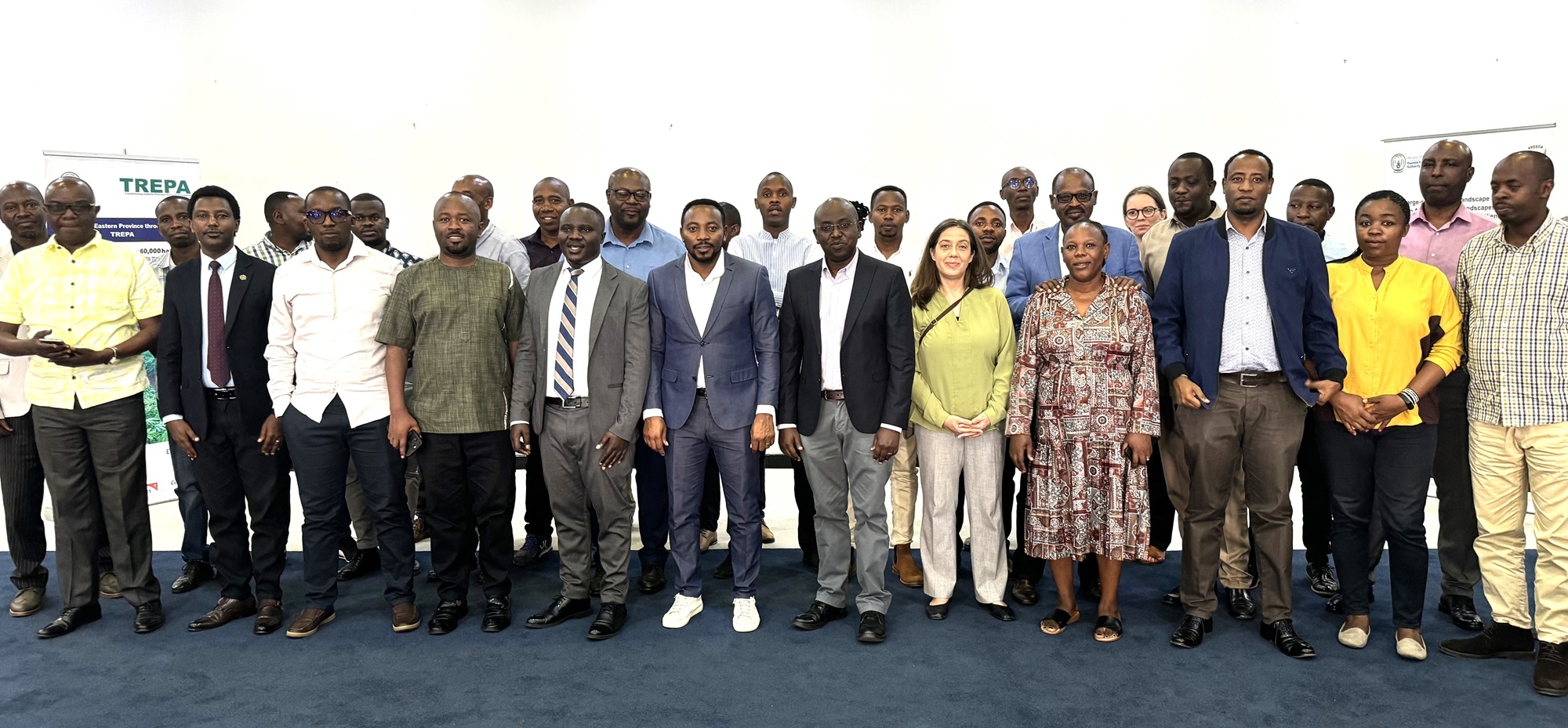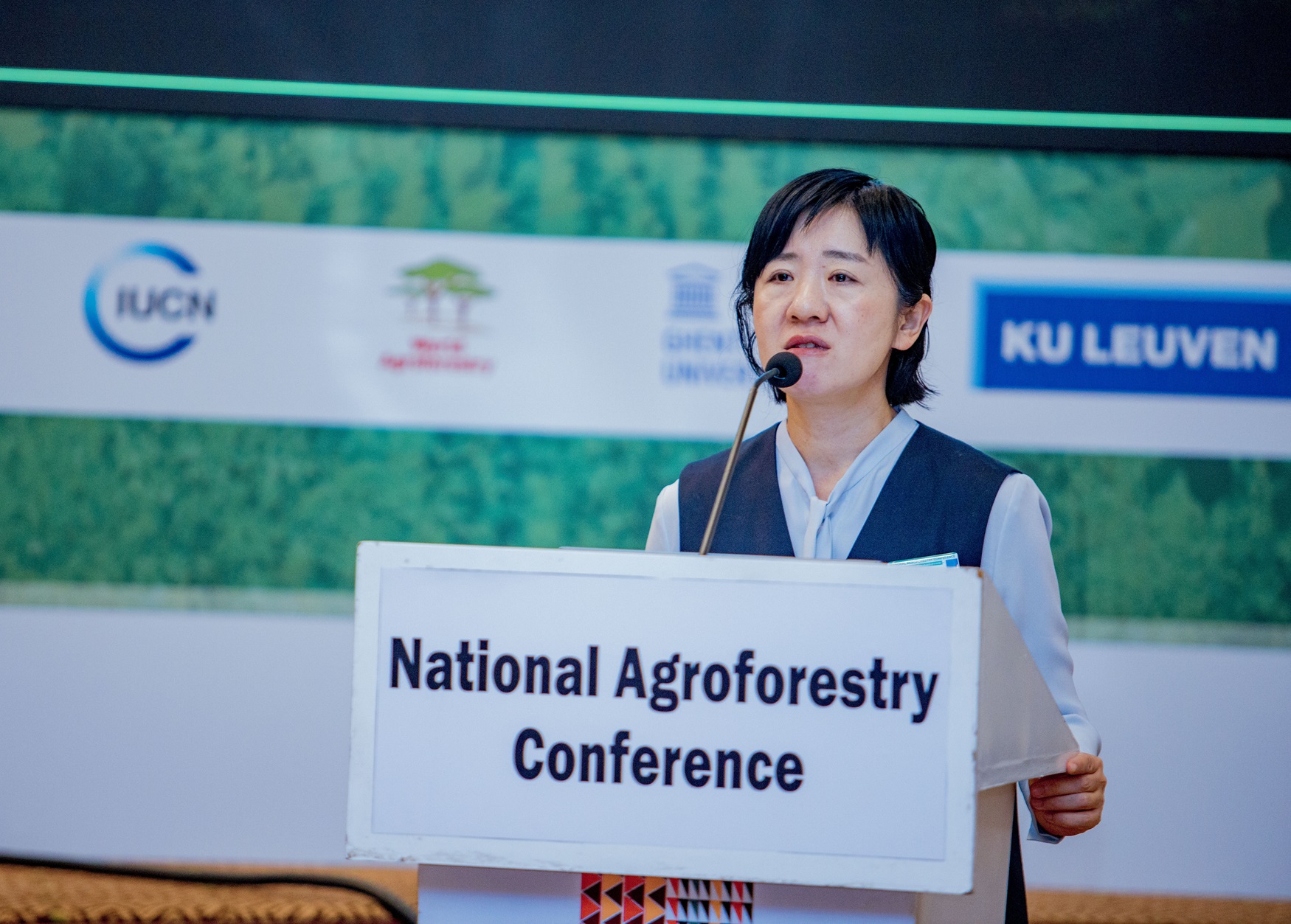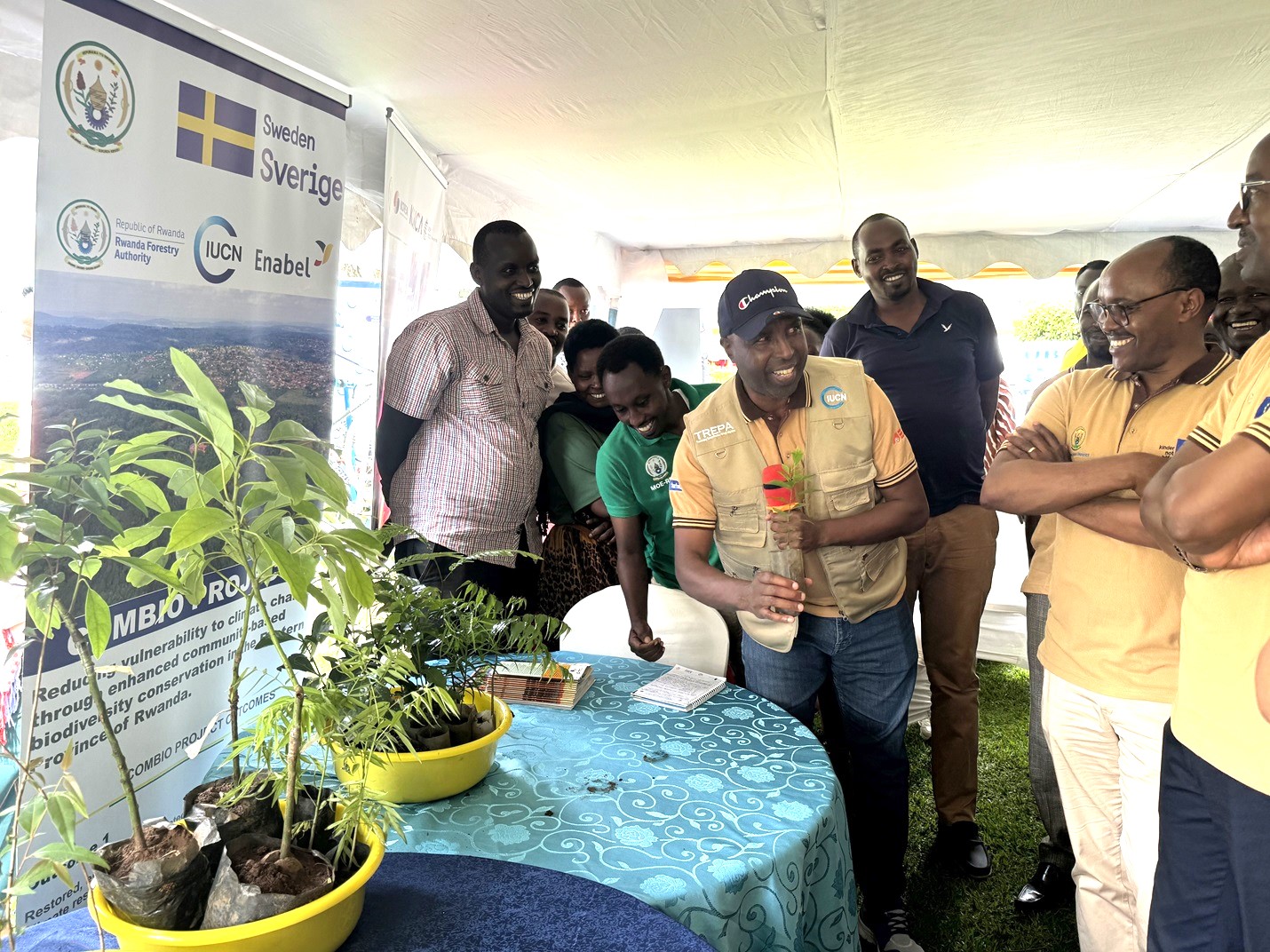Embracing Green Finance: A Journey of Climate Adaptation and Opportunity in Rwanda
While the enablers of climate finance are still finding their footing, the financial industry grapples with limited knowledge and information architecture regarding climate change. The emerging frameworks and contextualized approaches, coupled with the sector's immaturity in embracing green finance, create knowledge gaps among financial institutions.
Nonetheless, these players are beginning to acknowledge the threats posed by climate change to their businesses and the growing emergence of climate-related risks. Recognizing the need to respond to climate risks and capitalize on related opportunities, financial institutions are yearning for a paradigm shift.
The Green Climate Fund (GCF) and International Union for Conservation of Nature (IUCN) have signed a funding agreement for the project “Transforming Eastern Province through adaptation” (TREPA) with a co-financing from the Government of Rwanda and other Project Executing Entities.
The implementation of the six-year investment is being jointly executed by IUCN in collaboration with the Government of Rwanda through Rwanda Forestry Authority (RFA), Cordaid, CIFOR-ICRAF, Enabel, and World Vision.
 Photo: Highlighted landscape of Eastern Province of Rwanda where TREPA project is on course to restore degraded lands
Photo: Highlighted landscape of Eastern Province of Rwanda where TREPA project is on course to restore degraded lands
The TREPA project is currently on course to restore over 60,000 ha of drought-degraded landscapes into climate resilient ecosystems through reforestation, agroforestry, restoration of pasturelands, and erosion control measures in 7 districts of the Eastern Province of Rwanda, namely Kirehe, Kayonza, Nyagatare, Rwamagana, Gatsibo, Ngoma and Bugesera.
The project is also developing climate resilient markets and supply chains to incentivize public and private investments in forests, increase the capacity of communities to renew and sustainably manage forests and agroforestry resources, and support smallholder farmers to adopt climate-resilient agriculture.
In this pursuit, Cordaid, through the TREPA project is currently playing a crucial role in amplifying the engagement of microfinance institutions in the Eastern Province of Rwanda toward Green Finance. Cordaid's interventions focus on enhancing financial inclusion, particularly among women and youth, and promoting investments in climate-resilient agriculture and tree products.
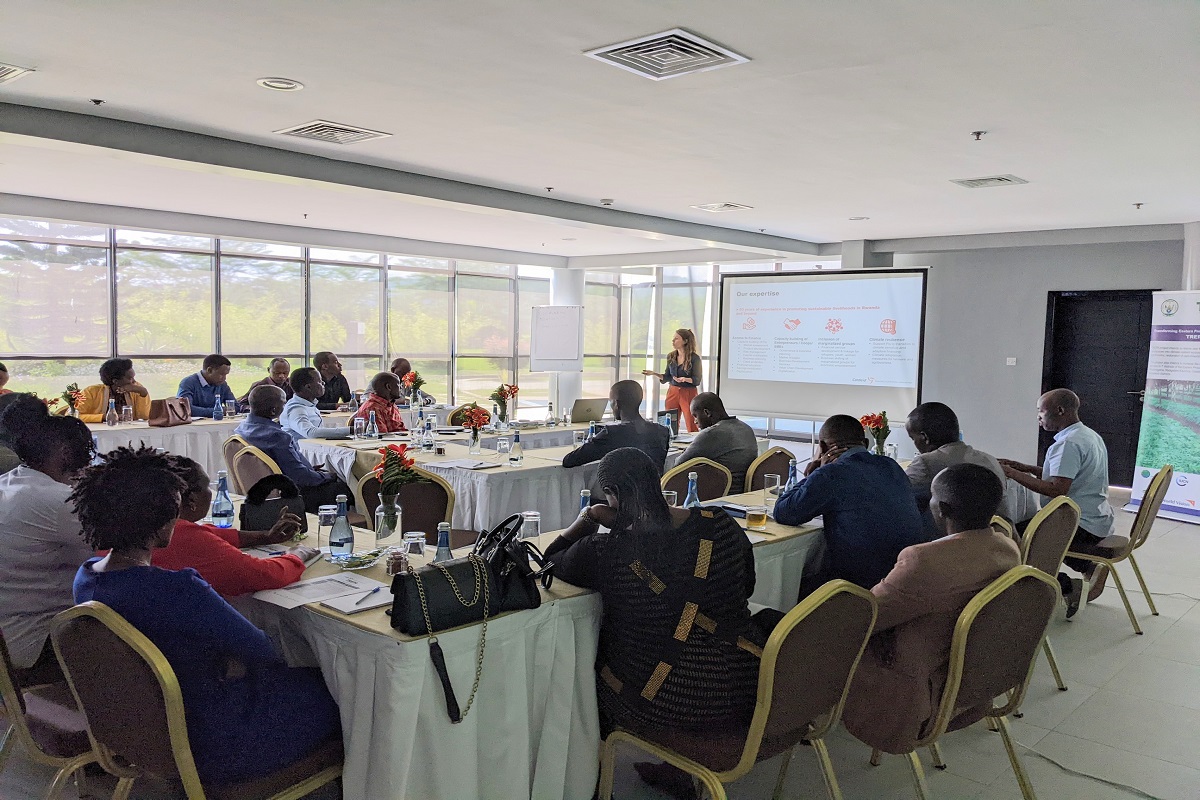 Photo: TREPA workshop with Nyagatare and Gatsibo SACCOs managers
Photo: TREPA workshop with Nyagatare and Gatsibo SACCOs managers
Through strategic partnerships, Cordaid has joined forces with four microfinance institutions namely RIM Ltd, Duterimbere IMF, Umutanguha Finance PLC, and Goshen Finance Company. They have been selected based on their strong dedication to serving rural communities and their growing presence in the Eastern Province.
These institutions have signed Memorandums of Understanding with Cordaid, committing to foster investments in climate-adapted agri-finance. The collaboration has already begun to reshape the policies and strategies of microfinance institutions, aligning them with a green orientation, all made possible through Cordaid's facilitation.
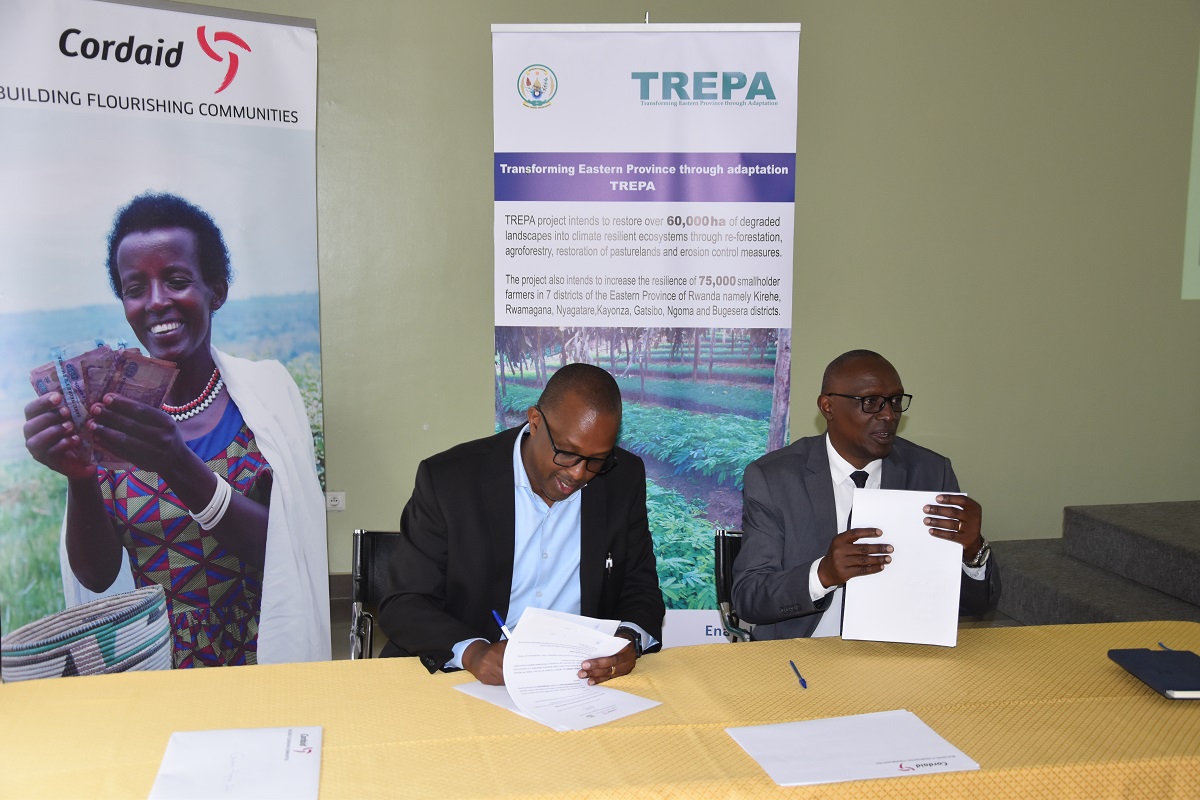 Photo: RIM Ltd and Cordaid signed MoU under TREPA project
Photo: RIM Ltd and Cordaid signed MoU under TREPA project
In pursuit of its objective, Cordaid facilitates capacity-building and knowledge-exchange sessions to actively involve its partner microfinance institutions. These sessions serve to deepen their comprehension of climate financing in general and highlight the business prospects inherent in the TREPA project.
During the inaugural training session, the board of directors and executive management team of Goshen Finance came together, sparking strategic thinking and motivating them to embrace the potential that investing in climate adaptation holds.
Musangamfura Ignace, Managing Director of Goshen Finance, reflects on the profound impact of the TREPA project on the financial sector:
"As Goshen, we now recognize that TREPA has shed light on our role as financial sector players in addressing the collective problem of climate change. We are no longer detached from this issue but understand that it concerns us all. Through managing climate risks and embracing climate adaptation actions, we can navigate the challenges and unlock the business opportunities that lie before us."
In addition to engaging microfinance institutions (MFIs), Cordaid has successfully brought SACCOs from the Eastern Province into the fold, uniting them in the collective effort to drive climate financing initiatives.
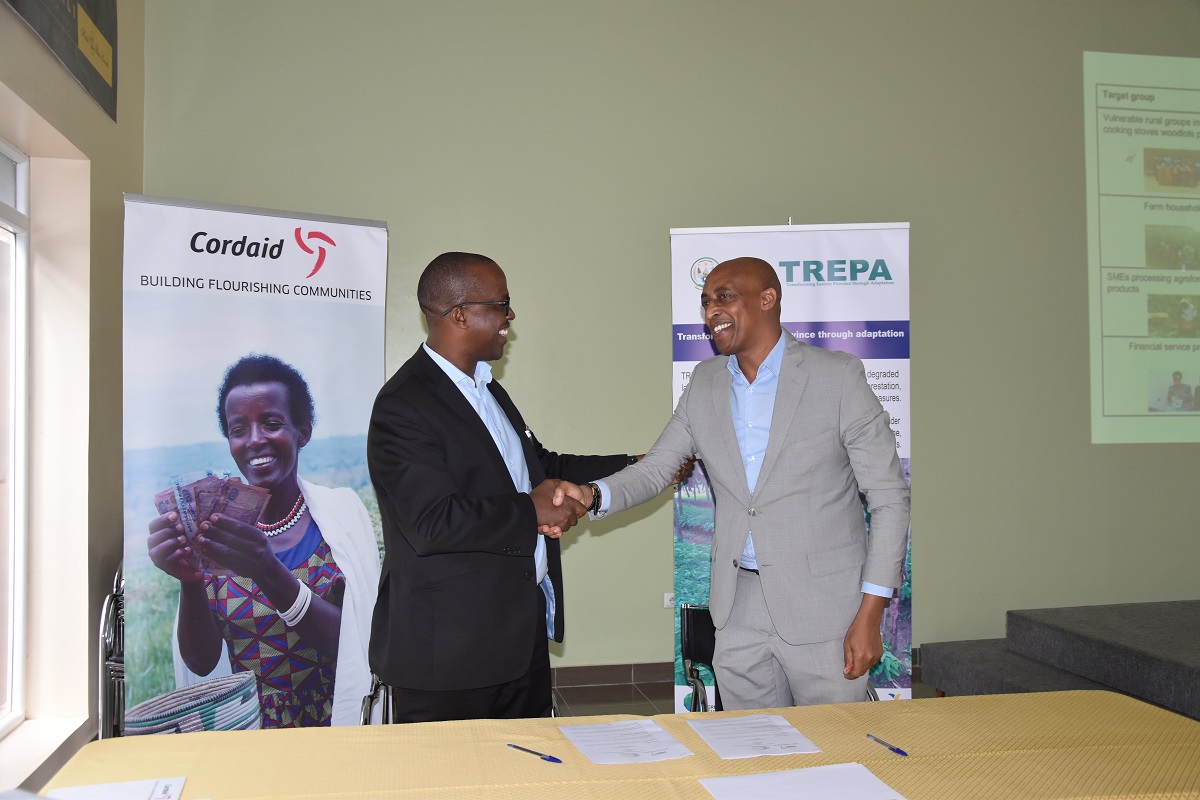 Photo: Duterimbere IMF and Cordaid signed MoU under TREPA project
Photo: Duterimbere IMF and Cordaid signed MoU under TREPA project
Cordaid sets its sights on empowering the local communities and fostering sustainable growth through the TREPA project. With a multifaceted approach encompassing both demand and supply sides, Cordaid aims to bring about a paradigm shift in the financial industry. At the heart of Cordaid's mission in the TREPA project is the belief that empowering the Eastern communities is the key to unlocking their potential.
Cordaid also recognizes the pivotal role of Umurenge SACCOs in the lives of the Eastern Province communities. These SACCOs are the financial backbone of the region, providing credits and collecting savings from individuals who have limited access to financial services.
Cordaid sees an opportunity to leverage the influence and reach of SACCOs to drive climate adaptation efforts. Through the TREPA project, it has initiated a partnership with 95 SACCOs spread across all districts of the province. In Bugesera district, 15 SACCOs joined the movement, while Rwamagana, Nyagatare, Ngoma, and Gatsibo districts had 14 SACCOs each. Kirehe and Kayonza districts also embraced the initiative with 12 SACCOs per district.
The collaboration between Cordaid and SACCOs is driven by a common purpose: to tap into climate finance and promote climate-resilient businesses. Cordaid has on its agenda to provide the necessary knowledge and skills to SACCOs, enabling them to offer loans for investments in climate-adaptive ventures. Additionally, SACCOs are expected to play a crucial role in extending credits/microcredits to farmer groups engaged in climate adaptation activities and fostering a culture of savings within the Eastern rural communities.
Cordaid aims to position SACCOs at the forefront of climate adaptation opportunities in the Eastern financial landscape. Through comprehensive training and support, Cordaid is ensuring that SACCOs understand the intricacies of climate financing and can effectively manage the financial risks associated with climate change. The ultimate goal is to empower SACCOs to champion climate actions and help their clients adapt to the adverse effects of climate change.
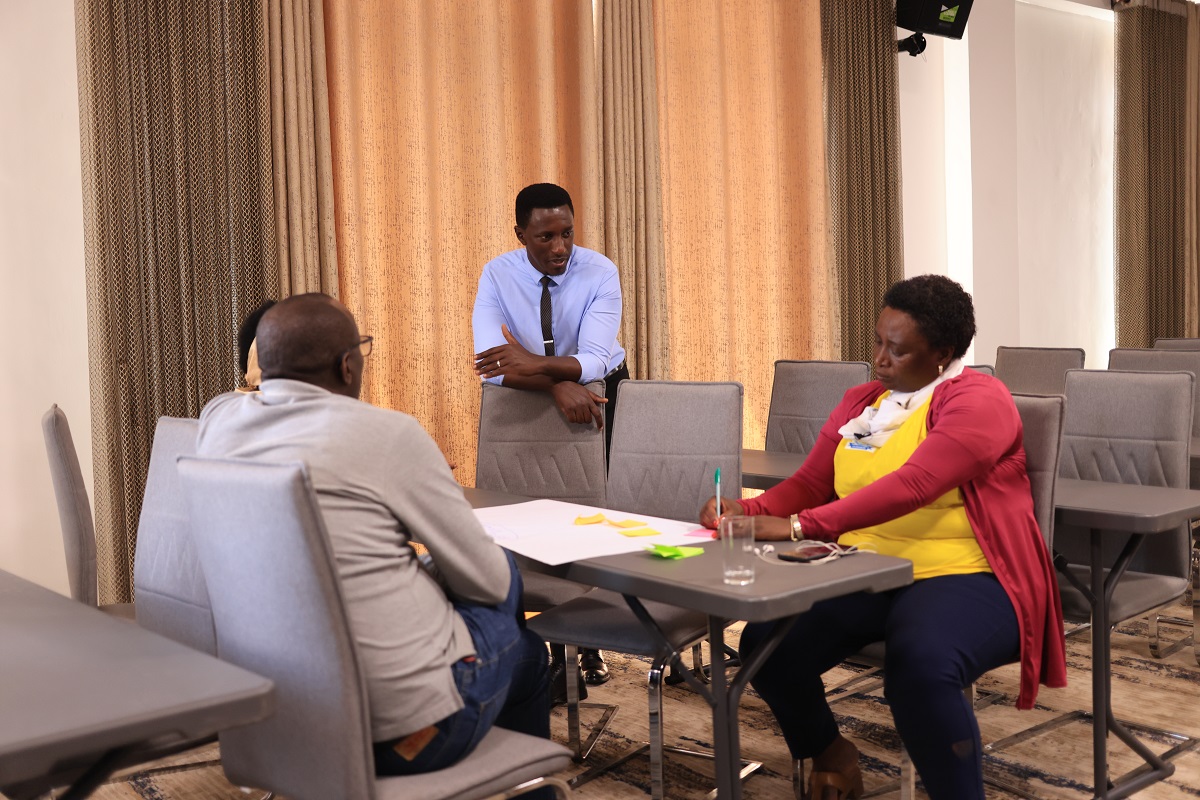 Photo: SACCO Umucyo Rukara Kayonza participated in learning Workshop organized by TREPA project
Photo: SACCO Umucyo Rukara Kayonza participated in learning Workshop organized by TREPA project
Dushime Dieudonne, SACCO Manager of Umucyo Rukara in Kayonza district, sees Cordaid's partnership as a beacon of hope. In the workshop facilitated by Cordaid, Dieudonne showcased the lack of partnerships with other development projects, which often overlook SACCOs’ potential. However, He noticed a difference with the TREPA project.
“It is acknowledging the need for SACCOs to gain expertise and tools related to climate finance. I believe that with this partnership with Cordaid, we can achieve significant investments in climate actions and guide our clients through the challenges of climate change”. He said
This partnership between Cordaid and these financial institutions aims to make a significant impact by promoting financial inclusion for the 250,000 individuals initially targeted by the TREPA project. It is also expected to exceed the project target to reach their clients outside the intended scope.
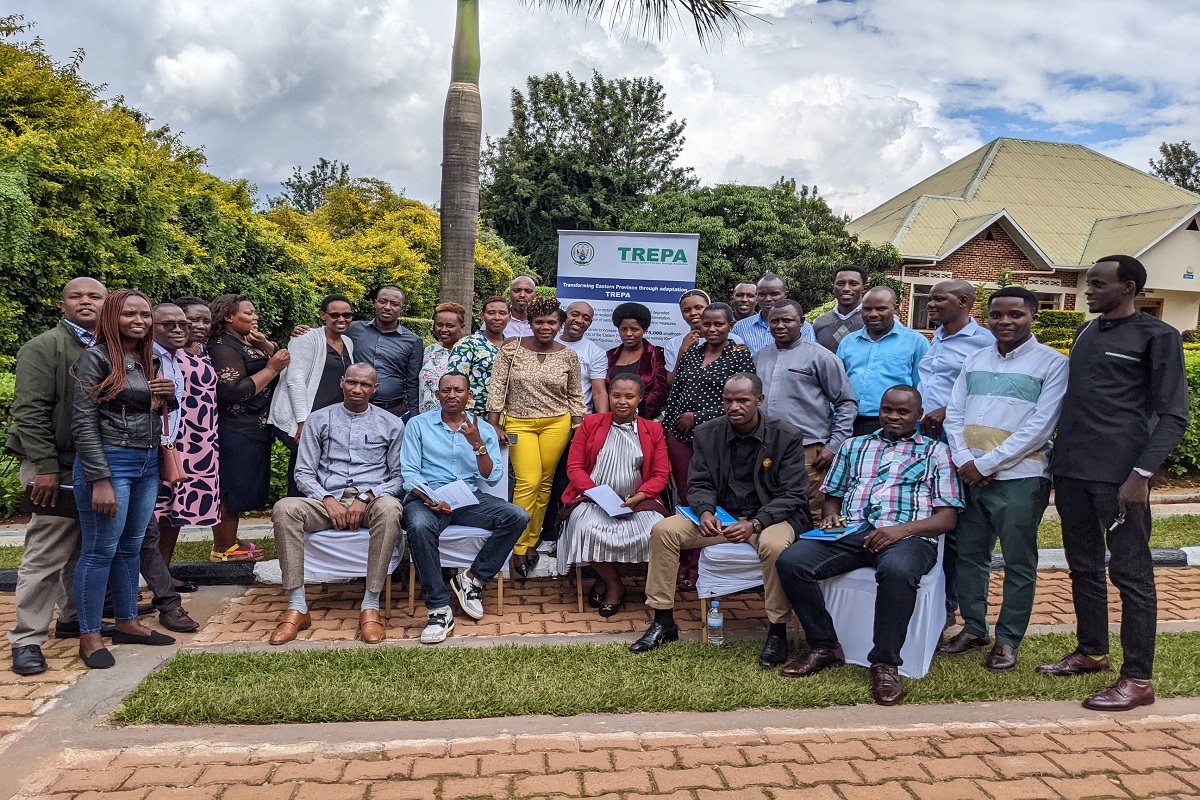 Photo: TREPA workshop for Rwamagana and Kayonza SACCOs Managers
Photo: TREPA workshop for Rwamagana and Kayonza SACCOs Managers
In conclusion, with the support from TREPA Project, the partnership between Cordaid, MFIs and SACCOs has the potential to significantly elevate the contribution of financial institutions in driving climate adaptation efforts within the Eastern Province. By joining forces, Cordaid, MFIs, and SACCOs are poised to create a powerful synergy that will enhance their collective impact on building climate resilience.
This collaborative approach, with a focus on the best interests of the rural communities, is set to unlock new opportunities and innovative solutions, ultimately leading to a more sustainable and climate-resilient Eastern Province
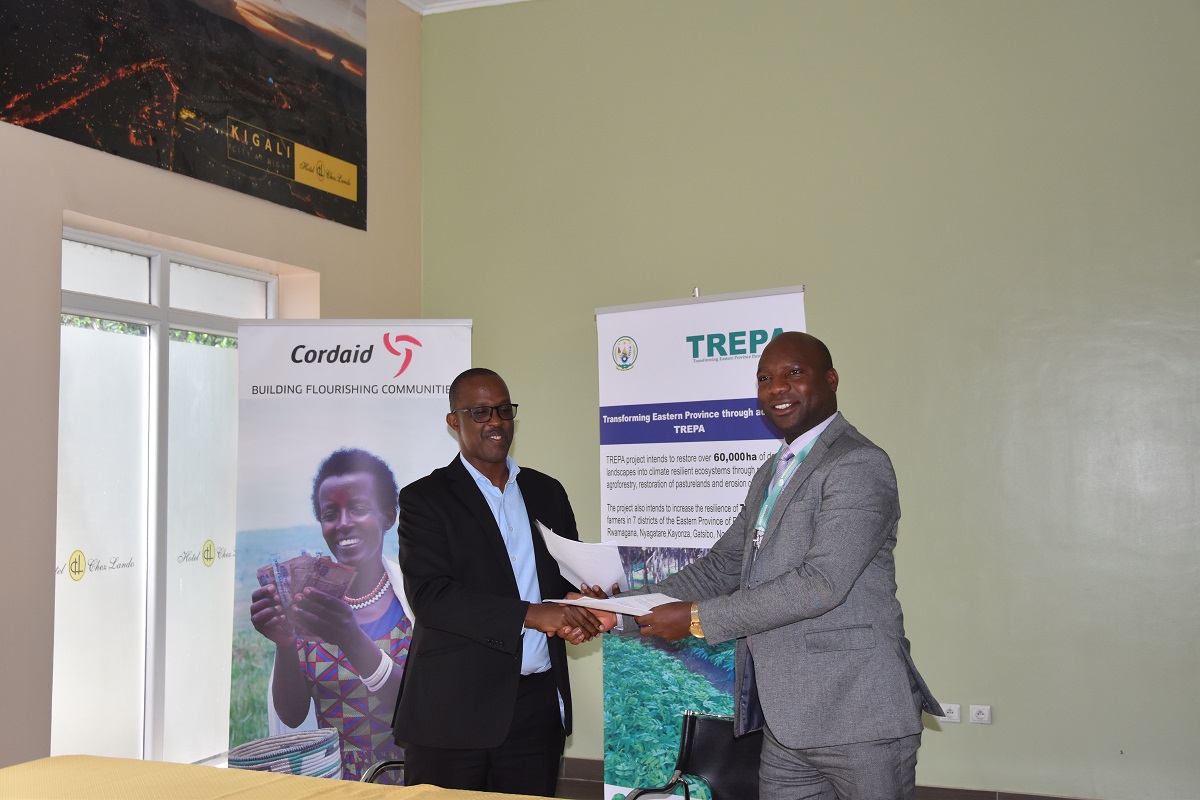 Photo: Umutanguha PLC and Cordaid signed MoU under TREPA project
Photo: Umutanguha PLC and Cordaid signed MoU under TREPA project
